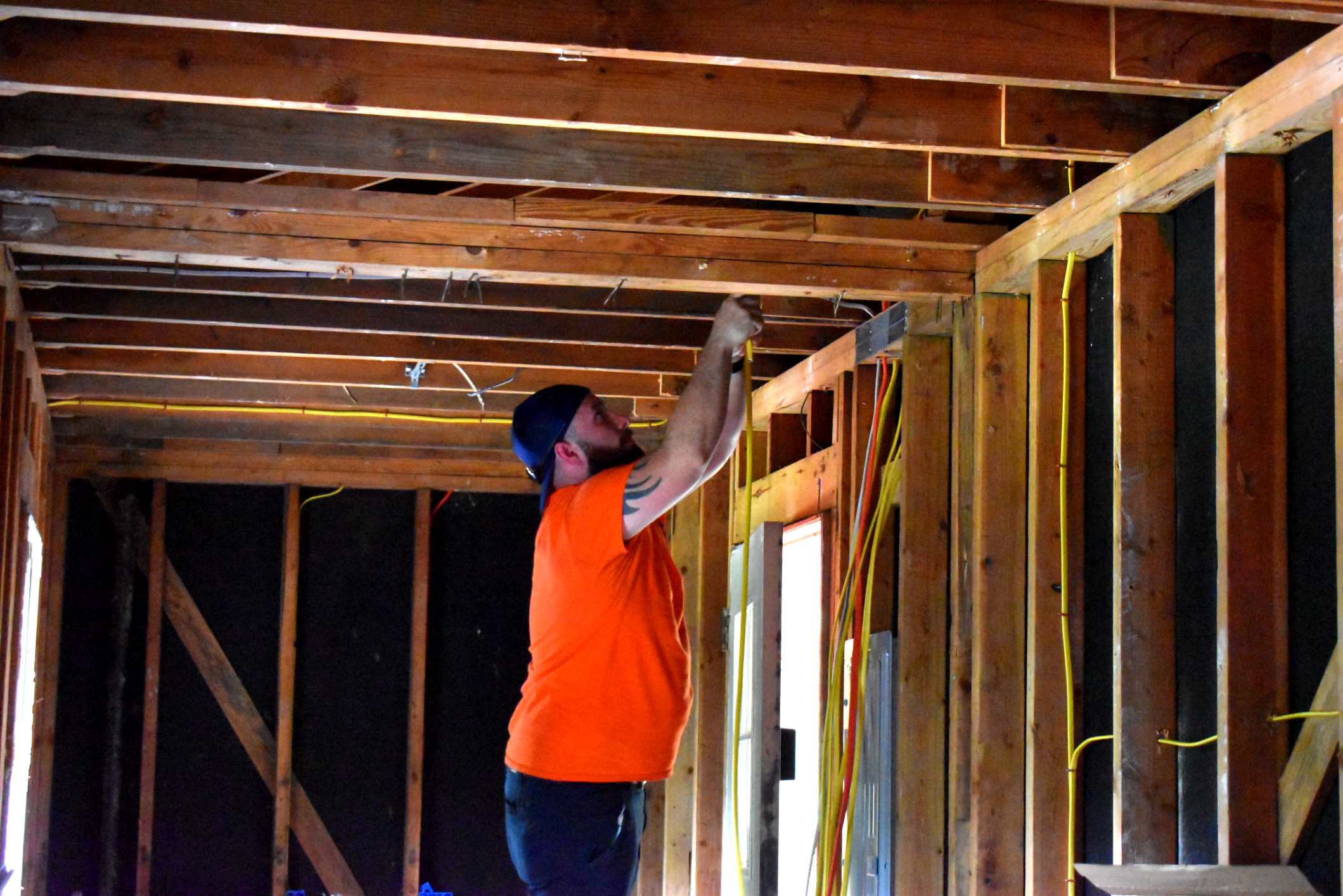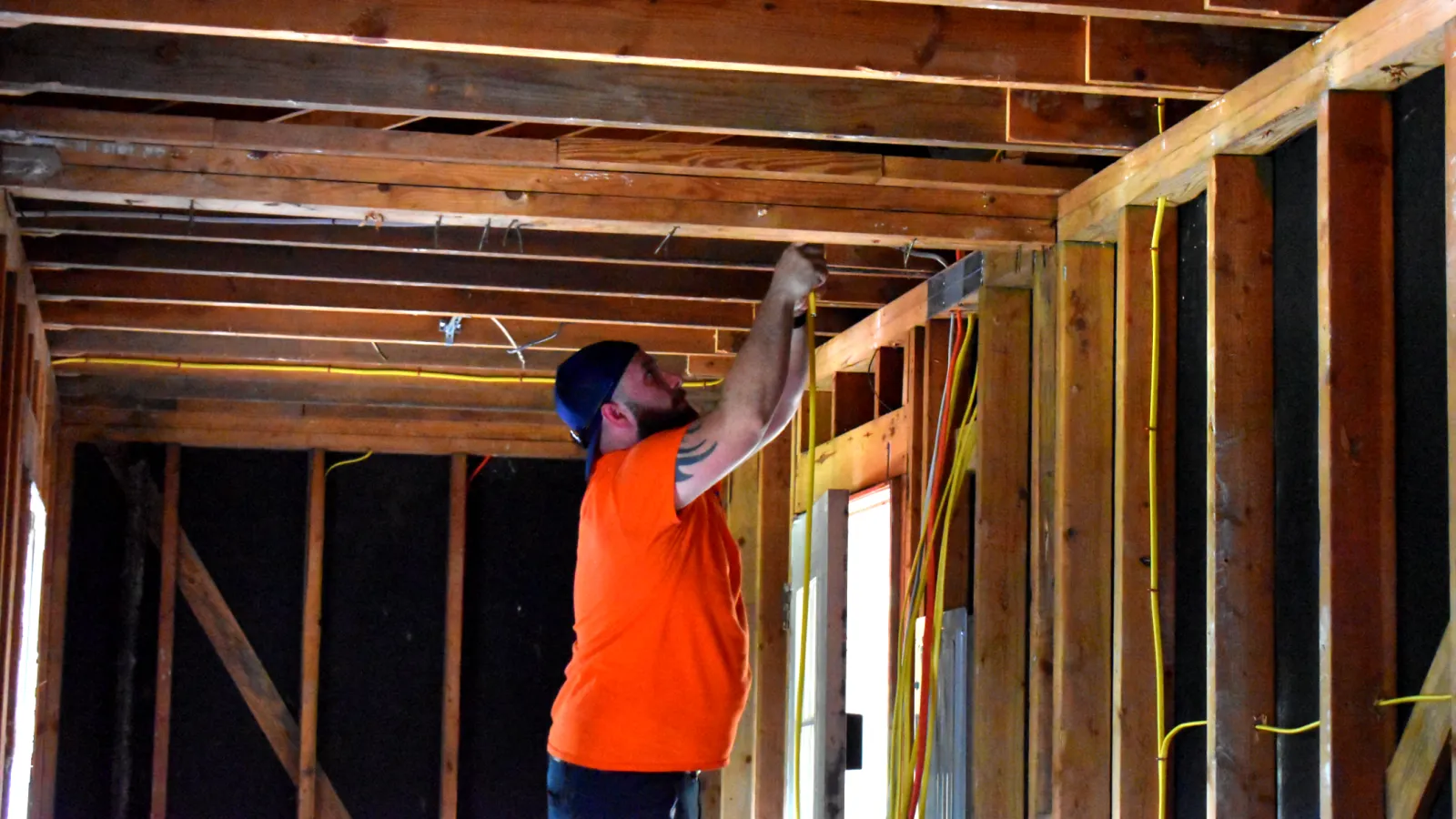How to Identify Outdating Wiring in Your Home
Does your home have outdated wiring? Outdating wiring can pose serious safety risks and limit your home's potential. It's better to be safe than sorry by knowing how to identify outdated wiring in your home. In this easy guide, we will discuss the common types of outdated wiring found in homes and their dangers so you can take steps to protect yourself and your loved ones.
Let's start with why you should replace your outdated wiring and then go into more detail about the types to be aware of.
Should you replace the old wiring?
Running electricity through outdated wiring can be an accident waiting to happen. In fact, according to the National Fire Protection Association (NFPA), faulty wiring is the leading cause of home fires. While your current wiring may appear to be sufficient, it is important to consider the increasing demands of modern appliances and technology.
Wiring in older homes is typically equipped with a lower voltage capacity, in which it is designed to accommodate smaller and fewer appliances. Newer homes are equipped with 220-volt capacity and can support more appliances and devices.
It's important to replace old wiring in your home because:
Safety Risks: Outdated wiring can pose health and safety hazards, including the risk of electrical fires.
Performance Issues: New devices and appliances can strain old wiring, leading to performance issues, such as flickering lights, power outages, strange noises and odors, and even electrical fires.
Reduced Home Value: Not only is old wiring not beneficial for modern appliances, it can also compromise your safety and impact your insurance coverage.
Increased Utility Bills: Inefficient wiring can lead to higher utility bills.
Peace of Mind: You will gain peace of mind knowing your loved ones are safe.
Newer wiring will help ensure your home is protected and up-to-date with modern electrical standards. If you suspect that you should replace your wiring, it is best to consult with a licensed electrician in Atlanta to assist with your rewiring options.
Now that you understand the importance of replacing outdated wiring, the next section will discuss the types of outdated wiring and systems that could be present in your home. 
Types of Old Wiring
Outdated wiring can be present in various elements throughout your home, from the electrical panel to the wiring material. Electrical wiring over the past century went through a set of trials and errors, where different systems and materials were used to wire homes.
Depending on the age of your home, it's likely that the original wiring may be still in existence behind your walls. So, it's best to understand the types of outdated wiring and systems.
Outdated Electrical Panel Systems
The electrical panel is the power control center of your home. They don't last forever, especially the older electrical panel systems, and, as they age, they can become prone to problems.
Panels used between the 1960s and 1990s or sooner may not meet code requirements and pose a fire hazard. These panels may lead to electrical overloads, high currents passing through, risk of electrical shock, and even fire. The last thing you want to deal with is a fire hazard or any appliance/gadget receiving a massive current overload.
If you are unsure of the age of your current electrical panel, have a professional Atlanta electrician assess your system and provide the necessary recommendations for ensuring the safety and comfort of your home.
Traditional Fuse Boxes
With the technology demands required by the modern household, old fuse boxes are not suitable for modern electrical systems and requirements. Today, new homes are being equipped with circuit breakers. These systems have better advantages over traditional fuse boxes as they can handle greater electrical loads as they 'break' or 'trip' when the electrical load is exceeded.
In traditional fuse boxes, fuses were used by allowing the fuse to melt and breaking the conductive connection between two wires. A melted fuse meant there was an excess in electricity. Once the fuse melted, a new fuse needed to be replaced.
As electrical demands have evolved, the limitations of traditional fusing became apparent, shifting what was once a functional solution into a potential safety risk. Circuit breakers represent a significant technological advancement, offering rapid and precise protection by instantly interrupting electrical circuits during overloads or short circuits.
Aluminum wiring
Aluminum wiring was used to supply electricity throughout homes built in the 1960s and the 1970s. Because aluminum is a good conductor of electricity, it conducts electricity very well. However, electricians at the time did not consider the thermal expansion properties of aluminum, which proved to be a mistake and not a long-term electrical wiring option for homes.
The expansive properties of aluminum proved to not be a viable option, as the change in its properties lead to premature wear and tear, looser connections at the terminals, and ultimately posing a fire risk to homeowners.
Copper wiring is the standard, as it withstands heat better and is a much more stable material choice over aluminum. If your home was built around this time, it is strongly recommended to have your current wiring setup evaluated by a licensed and trained Atlanta electrician like at Estes Services.
Knob and Tube Wiring
Knob and tube wiring is another old wiring method that was used from the early 1900s up to the late 1940s. These wiring systems used copper wires insulated in cloth paired with porcelain tubes designed to offer heat protection.
However, they are not meant to cover modern electrical systems, and they can become a major fire hazard. So, if you are moving into a century old home, a historic home, or even an office building, upgrading to modern wiring is again strongly recommended.
Non-Metallic Wiring
Non-metallic (NM) wiring, in which cables are wrapped in a flexible plastic sheath, is a type of wiring that was popular in the 1960s. While this wiring worked great back then, today's homes have different electrical needs. Replacing this type of wiring is also a good idea, and it can increase the comfort and safety of your home.
Schedule Home Wiring Consultation Today
That concludes our guide on identifying old and outdated wiring in your home. Outdated wiring isn't just an inconvenience—it's a potential safety risk. If you see the signs of this old wiring in your home, it is time to safeguard your electrical system by scheduling a consultation with a licensed electrician today.
At Estes Services, we provide the best electrical services in Atlanta, GA, to keep your home safe and comfortable. Our home electrical inspections is a great first step to understanding what electrical infrastructure your home currently has and what may need to possibly be upgraded or replaced.
With our award-winning team, excellent electrical expertise, and great special offers along with special financing, we make it easy for you to upgrade your wiring Schedule service online, or give us a call. It's that Easy; It's Estes!

